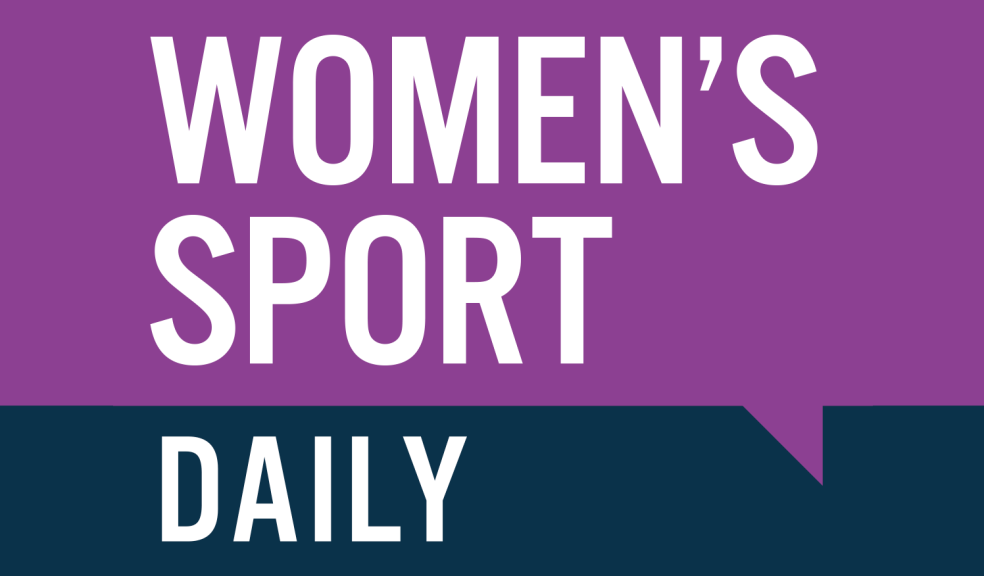
Why is everyone talking about menstruation and sport?
Professor Kirsty Elliot-Sale answers some of the big questions surrounding female physiology and sport performance
Why are more women coming forward to talk about their struggles around menstruation and playing sport?
Women's sport is without a doubt on the rise. Not only is the number of women playing sport professionally steadily increasing, but popularity by viewership, and winnings and wages for those participating, is also growing.
But, as we are hearing more about female athletes and their successes, a number of elite athletes are also coming forward to talk about some of their struggles and experiences as women in sport.
From discussing how their menstrual cycles are impacting their ability to optimise performance, to their difficulties in talking about periods with coaches.
This is happening in a whole range of sports and something that has been a topic during the Rugby League World Cup, as we have seen the women's competition run alongside the men's.
It's fantastic to see women coming forward and putting these issues on the table, and this is likely down to feeling more empowered to talk about some of these struggles as female sports grow in popularity.
But it's important to put these issues into context and address some of the big questions around female physiology and how it can impact sport performance.
How much are women impacted by menstruation?
I think one of the key things to remember is that this is only impacting a small proportion of sportswomen.
We don't yet fully understand the landscape of this, but we do know it is not something all female athletes struggle with – it very much seems to be an individual response.
Athletes have come forward to talk about how their cycles are making it difficult to optimise performance, but that just isn't the case for everyone.
Another thing to remember is that not all women have menstrual cycles – there will be as many athletes that don't than do.
Of course, if you don't have a menstrual cycle then it isn't something that we can link to performance.
From our research, which has looked specifically at effects of menstruation on exercise performance, we found that during the early follicular phase of the cycle – so during menstruation – exercise performance is slightly reduced, but only a trivial amount.
A trivial amount might make a big difference to some female athletes in their chosen sport and might make no difference at all to a different female athlete in their sport – context is key.
That being said, periods affect individuals differently. But what research can help us with is to determine how women can manage these impacts, such as adapting training.
Are periods taboo in sport?
There is a lot of hype around periods in sport being a taboo subject.
Again, this is something I think we see on an individual basis as opposed to it being the norm. Having worked in this area for 25 years and having worked with a range of sports, this hasn't been my experience.
That being said, we still don't know how best to work around menstrual cycles and this is something that we are still figuring out. But this shouldn't be confused with there not being any research in this area or that people aren't willing to talk about this subject.
How much research is there in this area?
There is often the misinterpretation that there is no research in this area, but that's not entirely true.
There has been research conducted around this, but what is interesting is that this research isn't always making its way to the athletes or practitioners themselves.
We often hear from elite athletes wanting more research around the subject, but for success in this area, elite athletes themselves need to be involved in the research too.
However, there are clearly disparities between research in men's sport and women's and that's something we are always working and trying to address.
How can we help women in sport?
This is an area that is only going to get more attention as women's sport continues to gain momentum in popularity.
We hope to use research to continue to help sportswomen, by identifying where there might be physiological things that impact women, that we can address through changing habits, training or just by having a better understanding.
By keeping conversations open around this subject, we can also prevent talking about menstruation and pregnancy in sport from becoming taboo.
But I think it’s also important for each individual sportswoman to try and help themselves – as this is such an individual issue.
Women can generate their own 'data' by tracking their own cycles and associated symptoms and mapping their own performance against these profiles.
They should also keep a look out for future research papers on these topics and to make sure that they, or their support staff, keep up to date with the latest high-quality research findings.










